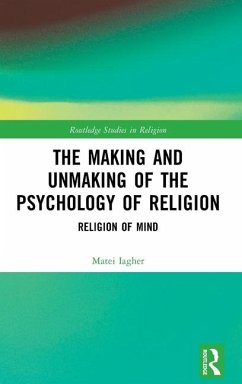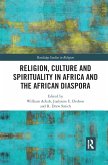This book examines the rise and demise of the psychology of religion in the late 19th and early 20th centuries in Europe and the United States. It considers the formation of the psychology of religion as an international movement, an enterprise whose goal was to refashion the science of religion at the turn of the century. Drawing on published sources and archival accounts, the chapters engage with the work of notable figures including William James, C.G. Jung, and Pierre Janet, placing it alongside lesser-known practitioners such as Ernest Murisier, James Henry Leuba, James Pratt, and George Albert Coe. In addition to probing the intellectual background and professional context for the emergence of this sub-discipline, the book examines the development of key concepts and methodologies among psychologists of religion and offers arguments both for the rise of the discipline as well as for its demise in the early decades of the 20th century.
Bitte wählen Sie Ihr Anliegen aus.
Rechnungen
Retourenschein anfordern
Bestellstatus
Storno








